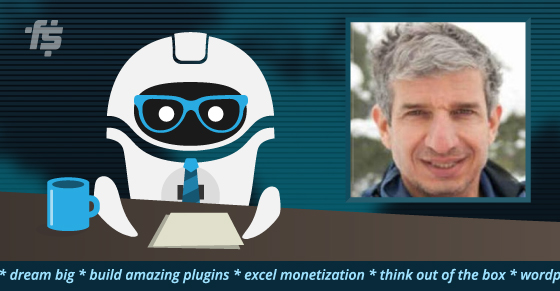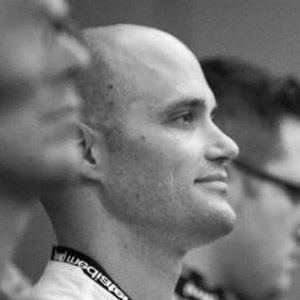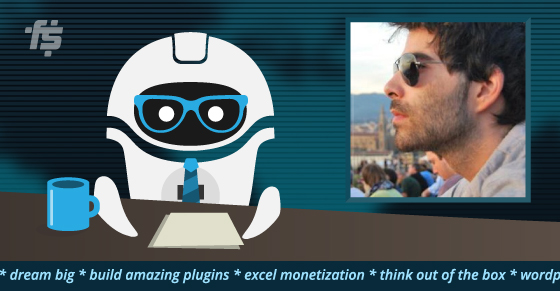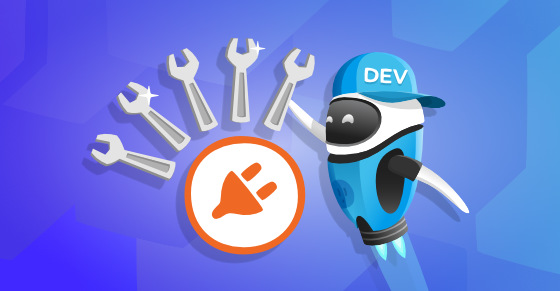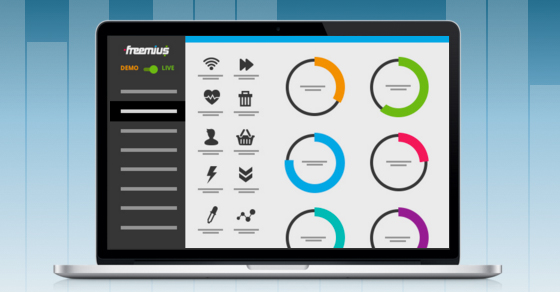|
|
Today we’ll get to pick David Rashty’s brain about WordPress-based product businesses and entrepreneurship. David owns several WordPress-based products, as well as various Magento-based ones. Additionally, he’s a seed investor, actively hunting for great early-stage ventures in which he invests his money.
David, thanks for agreeing to do this interview with us! Let’s start by getting to know you a bit – what’s your educational and professional background?
I have a BSc in Computer Science and MSc in educational technologies. I have been working as a CTO and CEO in several startups prior to building our cminds.com WordPress and Magento products marketplace.
When was your first encounter with WordPress and how did you get into the WordPress business sphere?
Back in 2007, I was hired to help improve a site for a certain VOIP company. It was running on WordPress 2.X, and I could see the potential in building tools to enhance the functionality and ease-of-use of the platform. At the same time, I thought it was not super well organized. Back then, there were few premium WordPress-based products, so I didn’t take it further, but that was the beginning of my relationship with WordPress.
Your company, CreativeMinds, offers many different WordPress-based plugins and add-ons for sale, alongside quite a few Magento extensions.
Does this strategy stem from your specific view of the WordPress market, or is it related to the good old business principle of “Do not put all of your eggs in one basket”?

I think it relates more to our understanding of how to keep things in balance. Both the Magento and the WordPress markets are not easy, and in order to surface and grow, we chose this model of going in two directions, which do have common grounds, but are focused on different customers and commercial audiences. This gives us the advantage of not falling flat on our face in case one of those markets is shaking, as we see now with Magento.
Is there anything in particular that you think the WordPress product ecosystem can learn from Magento?
First of all: pricing. The pricing model within Magento is more sustainable. This allows Magento developers to invest more time into product support and maintenance.
Second – code review. Every extension that gets submitted to Magento’s marketplace portal goes through an extensive code review.
Third, if an extension is not supported or frequently updated it will not be kept in the marketplace, so users will not be able to download and install it.
I think that WordPress has created an impossible challenge for itself, due to a large number of plugins which are either not written well, or are not being supported for almost 2 or 3 years, and which are still being downloaded by users.
WordPress created an impossible challenge for itself due to many unsupported or badly-written plugins.
In most cases, this ends with conflicts and errors, causing WordPress-based websites to malfunction.
The CreativeMinds blog is very active and you guys obviously invest many resources into it, publishing a new article every 3-4 days, on average. Is that a major part of your marketing strategy? How has that been working out for the brand?

This has changed over the years, as we were trying out different marketing strategies. Recently though, we came to the conclusion that we need to invest many more efforts into content and, as a part of that, we are posting more content on our blog, but at the same time we are also putting a lot of effort into other channels. Keep in mind that we are serving both the Magento and WordPress communities, so we have a LOT of topics to write about.
From an SEO point of view, it was a good decision we made in the beginning not to separate our blogs, having one for WordPress and one for Magento.
From a business perspective, out of all the efforts you have been investing in marketing & promoting your WordPress products – what has provided you with the biggest ROI?
That would for sure be content marketing. We are using different channels for non-paid content marketing. We are using multiple channels to promote our content, as well as various media formats, which include videos, blog posts, infographics, presentations and more. I would say it is a combination of all of those.
On your LinkedIn bio, it says you’re an active investor for early-stage startups. Would you say you come across many WordPress-based companies looking for an investment?
Why do you think that is?
Yes, I am indeed an early-stage investor. Have made around 10 investments in the last 3 years, some of those were successful and have already yielded acquisitions. I invest mostly in the startup scene in Israel, which is thriving.
As part of my overall strategy (see above – dividing between WordPress & Magento), I am trying not to put all of my investments in the same basket, so I am not investing in ventures which are focused on WordPress or open source technologies. That said, apart from my focusing away from WordPress, as an investor, I don’t hear of many WordPress-based ventures looking to get an investment.
As a seed investor, what are you looking for in the companies that come looking for an investment from you? Additionally, what are you looking for in the people that ask for your money?
Passion, team, market fit, business model. I would say it’s a mixture of those. I need to understand what they are doing and what their relative advantage is. Understand the team’s bonding and passion.
In the end, we invest in people and not just in technology, so I need to feel I can trust those I am invested in.
Where do you see your WordPress-based product businesses in 5 years from today, and what are the measures you are taking to make sure success does not fade?
I think it is hard to sustain WordPress products at the current pricing model, so we are trying to look for other ways to monetize our products’ value. One way is by building a suite or a bundle of our WP tools, which we will offer at a reduced cost. This is something we already started working on, and at the moment, we are working hard on growing our offering’s value.
Another direction in which we are headed is developing products that have an additional offering through a SaaS module, rather than just a standalone product. I hope that in 5 years we will have a couple of good products that have a strong SaaS platform, as well as an attractive suite with many valuable WP products included in it.
Grab a free copy of our Cheat Sheet for
Selling Plugins and Themes
A growth roadmap with concise, actionable tips for every milestone of WordPress product development.

What’s one good tip you can provide for developers who are looking to create a sustainable business around digital products?
I can only speak from my own personal experience, which is creating a variety of products rather than investing all efforts into one.
I think that in order to be sustainable, you need to avoid from focusing all of your efforts in one place (i.e., “all eggs in one basket”), as you may discover you’re running in the wrong direction, or your market might change in a sudden manner, causing you to fall flat.
To be sustainable – refrain from focusing all of your efforts in one place.
David, in case one of our readers wants to contact you online for business related inquiries or just to chat, what’s the best place to do that?
Email. I do use other communication means, of course, but email is the easiest way to grab my attention, and I do usually reply fast.
